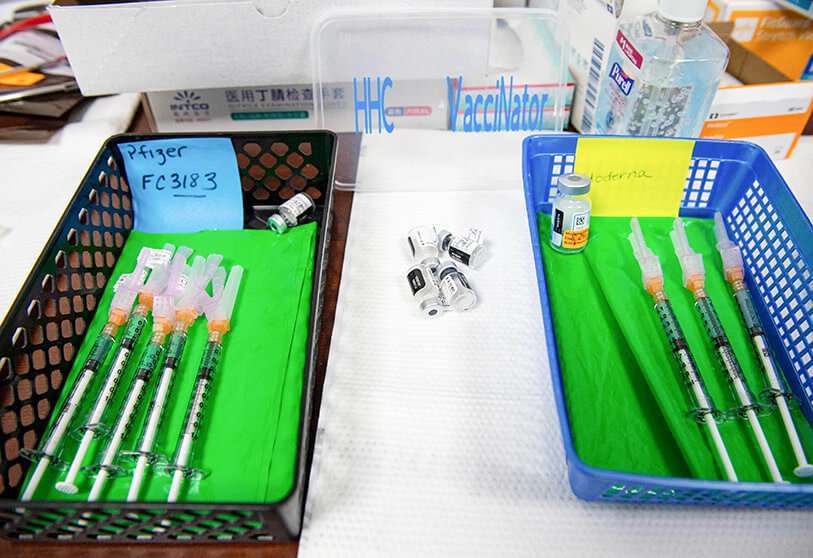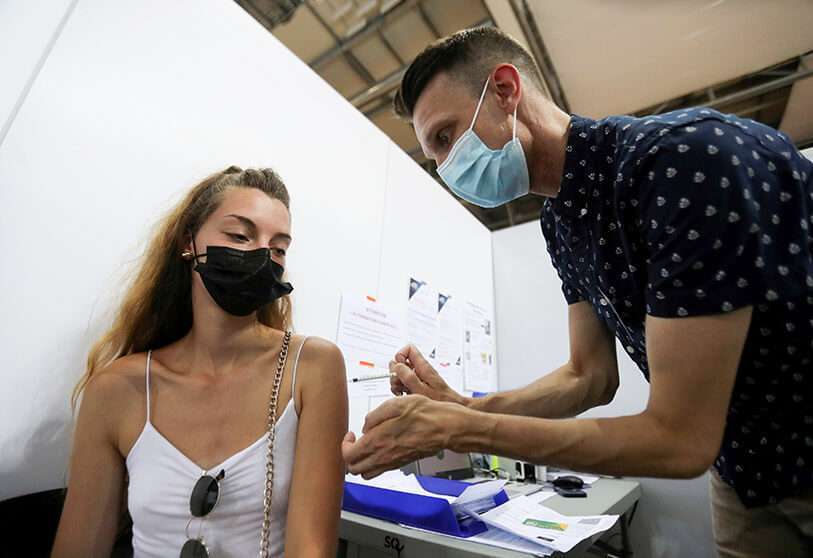Pfizer generates fewer antibodies in older people than Moderna

Research from the University of Virginia School of Medicine in the United States quantifies the antibody response generated by Pfizer's COVID and Moderna vaccines. The findings are some of the first to compare the antibody responses of the two vaccines head-to-head.
The most notable finding was that antibody levels in Moderna vaccine recipients were slightly higher than in Pfizer recipients. The difference was mainly due to antibody levels in relatively older subjects.
The researchers caution against drawing conclusions about the effectiveness of the vaccines based on antibody numbers; both vaccines have performed exceptionally well after being administered to millions of people worldwide. The new results are just one small piece in a much larger puzzle, as scientists seek to determine whether one vaccine may be superior for certain demographics.

"What will be interesting is to find out whether measuring antibody levels ends up being a good marker of vaccine protection. At the moment, we don't know for sure," explained UVA immunologist Jeffrey Wilson.
The Pfizer and Moderna vaccines use mRNA to teach the immune system how to defend against the COVID spike protein. However, the formulations of each vaccine are slightly different, with Moderna using more mRNA than Pfizer. That led the UVA scientists to seek to quantify and compare the resulting antibody responses.
To do that, they tested the blood of 167 UVA employees who received the vaccines. Samples were collected from one week to 31 days after the recipients' second dose of vaccine. Although the subjects were not randomised in the study, the vaccine administered was dictated by local availability at the time of vaccination - 79 received Pfizer and 88 received Moderna. In some cases, researchers were able to obtain a blood sample prior to the second dose, either before or after the first dose.

The average age of the study participants was 42 and 38% were 50 years or older. The majority, 72%, were women. Overall, the researchers found that Moderna produced more antibodies in the blood after the second dose than Pfizer: 68.5 micrograms per millilitre (ug/ml) for Moderna versus 45.9 for Pfizer.
To explore the effect of age on antibody responses, the researchers stratified participants into those under 50 or 50 and older. Pfizer recipients aged 50 and older produced less antibody than younger recipients after the second dose (31.1 ug/ml vs. 59.0 ug/ml). This age disparity was not observed in people who received the Moderna vaccine. The researchers speculate that this is due to the difference in the amount of mRNA contained in the vaccines: Moderna uses more than three times as much.

The scientists note that they did not specifically look at neutralising antibodies, the type of antibodies that prevent the virus from entering cells. Nor did they look at T cells and B cells, which are other vital players in the body's immune response. "That will require more complex studies and more time," they say.
However, the new results are an important data point as clinicians and scientists chart the future response to the pandemic. Scientists continue to study the long-term effectiveness of the vaccines and are assessing whether booster shots will be needed, especially among older people who may not have generated as strong an immune response as younger people.








